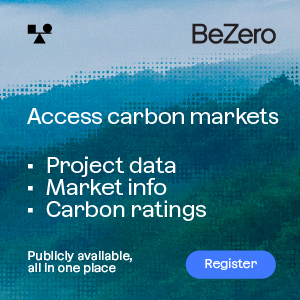Presenting CP Daily, Carbon Pulse’s free newsletter. It’s a daily summary of our news plus bite-sized updates from around the world. Subscribe here
TOP STORY
Singapore slashes starting level of carbon tax to S$5/t
Singapore will tax CO2 its big emitters S$5/tonne ($3.81/t) from 2019, Finance Minister Heng Swee Keat said Monday, significantly lower than previously planned.
EMEA
EU Market: EUAs rise almost 4% towards €10 despite another weak auction
EU carbon prices lifted towards their recent €10 highs on Monday, shrugging off another weak auction as observers were dismissive of prospects for further falls.
AMERICAS
CO2 pricing could be back on for Ontario as former frontrunner Brown eyes comeback
Former Ontario PC leader Patrick Brown has decided to re-enter his party’s leadership race, after stepping down last month following sexual misconduct allegations.
ASIA PACIFIC
‘Choose your own cap’ under Australia’s Safeguard mechanism -report
CO2 emissions from facilities covered by Australia’s Safeguard Mechanism will increase by at least 22 million tonnes per year as companies are largely free to set their own caps, a study found.
———————————
Job listings this week:
- Senior Consultant – Renewable Energy, South Pole – Amsterdam/London/Stockholm
- Marketing Graduate, ClimateCare – Oxford, UK
- International Climate Change Policy and Negotiations Modelling, UK Department for Business, Energy and Industrial Strategy (BEIS) – London
- Manager, Climate Change Coordination, Sustainability Victoria – Melbourne
Or click here to see all our job adverts
———————————
BITE-SIZED UPDATES FROM AROUND THE WORLD
**Argus has released the recordings of two webinars held in recent weeks with carbon market experts Redshaw Advisors. One looked at the ongoing changes to the EU ETS stemming from Brexit, the MSR, and post-2020 reforms and one discusses the opportunities and challenges facing the South Korean carbon market. The webinars were conducted in the run-up to Argus’ Mar. 6-7 Emissions Markets 2018 conference in Amsterdam. Carbon Pulse readers are eligible for a 10% discount on the event – just use this link and enter code CARBONPULSE10 when booking passes online.**
DAX attacks – Large German companies including tech giant Siemens have criticised the country’s coalition agreement between Social Democrats and the conservative CDU/CSU for being too weak on climate action. A survey among Germany’s 30 Dax-listed companies also shows they support a global CO2 price to reduce emissions. (Handelsblatt, Clean Energy Wire)
A modified proposal- Despite its opposition to the Oregon’s proposed ‘cap-and-invest’ legislation, numerous opportunities abound for a full and cost-effective decarbonisation of the state’s energy and transportation sectors, according to a recent study commissioned by Portland General Electric (PGE). The analysis, carried out by Evolved Energy Research, designed and evaluated three scenarios that could meet the state’s current goal of reducing GHG emissions by 75% below 1990 levels by 2050. The three scenarios, “high electrification”, “low electrification”, and “distributed generation”, would each lower per-capita energy consumption by roughly 40% and lower the carbon intensity of electricity by 90% or more. For its part, PGE says that it is not against putting cap on GHG emissions or pricing carbon per se, but rather the particular design of Oregon’s potential carbon market. (Oregon Live).
A modified proposal, part two- A potential rival bill to Oregon‘s same ‘cap-and-invest’ legislation was passed out of the House Agriculture Committee last week, emphasising the role that carbon sequestration can play in lowering the state’s GHG emissions. HB-4109 would require the Department of Forestry to study how the state could utilise forest sinks to capture carbon emissions, rather than through processes contained in the state’s proposed cap-and-trade scheme. Originally, the bill required the Department of Ecology to also partake in the analysis, but the provision was scrubbed before passing out of committee. The bill now goes to the Joint Committee on Ways and Means for discussion before it can be brought before the entire House for a full floor vote. (Capital Press).
And finally… Too easy – Solar engineering costs would be relatively cheap – perhaps too cheap – at roughly under $10 billion a year, according to Harvard University economists Gernot Wagner and Martin L. Weitzman. The main difficulty will be in stopping countries from doing too much too soon without international agreement. At best, solar geoengineering is a supplement to other efforts to combat climate change, the permanent solution is a regimen of diet and exercise (Wall Street Journal)
Got a tip? Email us at news@carbon-pulse.com



